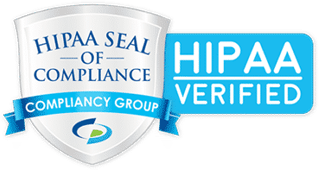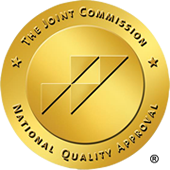Cognitive-Behavioral Therapy (CBT) in Texas
What sets our CBT program apart is its tailored integration into each client’s comprehensive treatment plan. Whether addressing substance use disorders, co-occurring conditions like depression or anxiety, or the underlying thought processes that maintain addiction, our therapists provide the tools for meaningful cognitive restructuring. Clients leave equipped not just with temporary solutions, but with fundamentally healthier ways of processing challenges, skills that continue to serve them long after treatment ends.
Take the first step toward cognitive transformation today. Connect with our admissions team to learn how CBT can work for you.

What Is Cognitive Behavioral Therapy (CBT)?

CBT for substance abuse is structured, goal-oriented, and usually short-term. Sessions involve discussing challenges, practicing new coping skills, and applying them in daily life.
Therapists use different CBT techniques to help people manage stress, build confidence, and develop problem-solving skills. Some methods include identifying triggers, challenging negative thoughts, and practicing relaxation exercises. Many addiction treatment programs use CBT because it helps individuals understand cravings and avoid relapse. It teaches strategies to handle difficult emotions without turning to substances.
CBT can be done individually or in groups. It provides practical tools that people can use every day. With practice, it helps create lasting positive changes in how people think and act.
What is the Cognitive Triangle?
Thoughts
Thoughts shape how people see themselves, others, and the world. Negative thinking can create stress, anxiety, or low self-worth. In addiction recovery, unhelpful thoughts may lead to cravings or hopelessness. CBT helps people recognize and challenge these thoughts, making it easier to develop healthier perspectives.
Feelings
Emotions are influenced by thoughts and can affect behavior. Stress, sadness, or frustration can lead to unhealthy coping mechanisms. In addiction recovery, intense emotions may trigger cravings or relapse. CBT teaches people how to manage emotions in healthier ways, reducing the urge to use substances.
Behavior
Actions are often based on thoughts and feelings. Negative patterns can reinforce harmful habits, making change difficult. In addiction treatment, CBT for substance abuse focuses on replacing unhealthy behaviors with positive coping strategies. Practicing new habits can improve emotional well-being and create lasting change.
By understanding the cognitive triangle, individuals can break unhealthy cycles and make better decisions in recovery and daily life.
Contact Our Admissions Team Today
How Does Cognitive Behavioral Therapy Work?
Therapists guide individuals in recognizing harmful thoughts and replacing them with more balanced perspectives. This shift leads to better emotional responses and healthier choices. CBT is structured, goal-oriented, and usually short-term, making it an effective approach for many mental health conditions.
CBT for substance abuse helps individuals understand triggers and develop coping skills. It teaches ways to manage cravings, avoid high-risk situations, and respond differently to stress. By breaking negative thought patterns, people can reduce the urge to use substances.

CBT also includes problem-solving techniques, relaxation exercises, and behavior modification strategies. These tools help individuals build resilience and regain control over their actions. Sessions often involve real-life practice to strengthen these skills.
Over time, CBT helps people develop lasting habits that support emotional well-being and healthier decision-making. It provides a structured path toward personal growth and recovery.
Testimonials
![]()
![]()
![]()
![]()
![]()
Victoria H
I couldn’t recommend Origins more, I first attended their IOP program, then their residential program in South Padre. I’m writing this today a year and a half sober and going strong. Origins has literally saved my life in more ways than one.
![]()
![]()
![]()
![]()
![]()
Emily W
The clinicians are knowledgeable and skilled in a way that is always helpful and never harmful. This program brought me lasting healing and freedom.
![]()
![]()
![]()
![]()
![]()
Mary L
I cannot say enough about Hannah’s House. I entered broken, tired and far more sick than I realized. I was treated with kindness, love, patience and respect by all. I was so frightened to go but sad to leave, that speaks volumes. Thank you from the bottom of my heart to all who put me back together, I am eternally grateful.
![]()
![]()
![]()
![]()
![]()
Jack W
I struggled with my sobriety for over 5 years, but they were able to help me through the 12 steps of AA. I have been sober ever since my experience here. I’ll be hitting 2 years of sobriety in 22 days, thanks to this treatment center. No matter where you go, it’s all about your level of commitment towards gaining a better life ?
![]()
![]()
![]()
![]()
![]()
Jazmine R
Origins was exactly what I needed. The staff were incredibly knowledgeable, compassionate, and helpful. They come with years of experience and consider each individual they’re helping. If you’re looking for a facility that will truly care as much as you/your parents do, or are desperate for a miracle — I can’t recommend Origins more! ❤️
How Can CBT Help with Substance Abuse Recovery?
- Manages Cravings – CBT teaches individuals how to recognize cravings, understand their causes, and develop strategies to reduce their intensity.
- Identifies Triggers – People learn to recognize specific situations, emotions, or environments that increase the urge to use substances.
- Changes Negative Thought Patterns – CBT helps individuals challenge unhelpful thoughts that contribute to stress, anxiety, or relapse.
- Develops Healthier Coping Skills – Instead of turning to substances, people practice alternative ways to handle stress and emotions.
- Improves Problem-Solving – CBT encourages individuals to approach challenges with logical thinking rather than impulsive reactions.
- Strengthens Emotional Regulation – Techniques like mindfulness and relaxation exercises help individuals manage emotions in a balanced way.
- Builds Self-Confidence – As individuals develop new skills, they feel more in control of their recovery journey.
- Supports Long-Term Sobriety – CBT helps create lasting changes by reinforcing healthy behaviors and thought patterns.
CBT Techniques for Substance Use Disorders
This technique helps individuals identify and challenge unhelpful thoughts. Negative thinking can lead to stress and cravings. By replacing harmful thoughts with more balanced ones, people can improve their emotional responses and decision-making.
Engaging in positive activities can improve mood and reduce the urge to use substances. Behavioral activation encourages individuals to participate in hobbies, social interactions, or exercise. These activities create a sense of accomplishment and reduce stress.
This strategy teaches healthier ways to handle stress, anxiety, and triggers. Individuals practice techniques like deep breathing, mindfulness, and problem-solving. Learning to manage emotions without substances improves long-term recovery.
People learn to recognize specific situations or emotions that lead to cravings. Once identified, they develop plans to avoid or respond differently to triggers.
These techniques provide individuals with the tools they need to stay sober and handle life’s challenges more effectively.
Nationally Recognized & Accredited




How Does CBT Support Relapse Prevention and Strengthen Long-Term Sobriety?
- Identifies Triggers – CBT helps individuals recognize specific situations, emotions, or people that can lead to cravings and substance use.
- Develop Coping Strategies – Individuals learn healthy ways to manage stress, anxiety, and other challenges without turning to substances.
- Teaches Problem-Solving Skills – CBT encourages individuals to approach challenges with logical thinking, rather than relying on impulsive behavior.
- Enhances Emotional Regulation – Techniques like mindfulness and relaxation exercises help individuals manage their emotions and reduce the risk of relapse.
- Builds Self-Efficacy – CBT helps individuals develop confidence in their ability to handle difficult situations and stay sober.
- Reinforces Positive Behaviors – By identifying and rewarding healthy habits, CBT helps strengthen commitment to long-term recovery.
- Prepares for High-Risk Situations – CBT teaches individuals how to create a plan for managing cravings or stressful situations that may arise.
- Promotes Resilience – By addressing both thoughts and behaviors, CBT builds resilience, making it easier to maintain sobriety over time.
How Does CBT Support Dual Diagnosis Treatment?
- Personalized Treatment – CBT tailors strategies to each individual’s unique needs, enhancing effectiveness in treating both addiction and mental health.
- Reduces Relapse Risk – By improving coping mechanisms, CBT lowers the likelihood of turning to substances during mental health struggles.
- Increases Awareness – CBT helps individuals recognize how their mental health and substance use interact, leading to a better understanding of their struggles.
- Enhances Communication – Individuals develop improved communication skills, which can strengthen relationships and reduce emotional isolation.
- Focuses on Long-Term Recovery – CBT promotes strategies that extend beyond immediate relief, fostering lasting change in both addiction and mental health.
- Boosts Motivation – CBT encourages individuals to set realistic goals and take action toward overcoming both addiction and mental health issues.
- Strengthens Support Networks – Through CBT, individuals learn to engage with support systems, increasing external resources for recovery.
- Promotes Self-Reflection – Individuals are guided to reflect on their progress, helping them stay motivated in their journey toward better mental health and sobriety.
CBT at Origins Texas Recovery Can Help You or a Loved One
At Origins Texas Recovery in South Padre Island, TX, therapists work with individuals to identify harmful thought patterns that contribute to addiction and mental health struggles. CBT helps participants recognize triggers and develop healthy coping strategies.
The facility’s approach is individualized, ensuring that each person receives the support they need to make lasting changes. CBT for substance abuse is combined with other evidence-based therapies to create a comprehensive treatment plan.
In addition to managing cravings and triggers, CBT helps individuals enhance emotional regulation, develop problem-solving skills, and foster self-confidence. These tools support recovery, reducing the risk of relapse.
If you or a loved one could benefit from CBT at Origins Texas Recovery, contact us today to learn more about our treatment programs and begin your journey toward lasting recovery.













